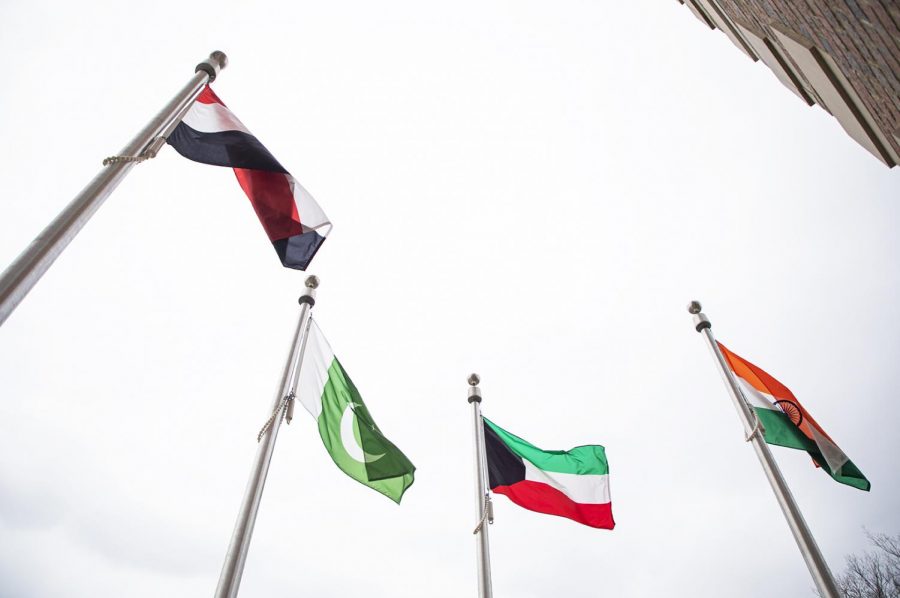Declining international enrollment not a problem unique to WKU
January 29, 2019
Over the past four years, international enrollment at WKU has been in decline, dropping from 1,400 students to about 400.
Nearly a decade ago, international enrollment stood where it is now with 400 students. In a meeting with the Herald editorial board, WKU President Timothy Caboni said international enrollment increased to 1,400 in four years but has been on a decline for another four years.
“We raised the international enrollment budget thinking it was a trend, but it was just a blip,” Caboni said. “We had four years of tremendous growth and then four years of tremendous decline.”
Over the next couple of years, Caboni predicts WKU will see another year and a half of declining international enrollment before it bottoms out. He explained the fluctuations in international student enrollment had tuitions revenue implications for WKU as a university and also said revenue should not be the end goal in international student enrollment.
“The purpose of international programs at this university cannot be revenue,” Caboni said. “It has to be educating people from away. It has to be about our domestic students learning next to those undergraduate students in a way that makes for a more interesting and complex undergraduate experience.”
Caboni also linked the experiences of undergraduates who study abroad to enrollment persistence and said there is a 94 percent graduation rate among students who study abroad in comparison to a 47 percent graduation rate in students that didn’t have those experiences.
“International education is still extremely important to us as a university, and it’s important to our students,” Caboni said. “We’re going to remain committed to that.”
John Sunnygard was announced as the associate provost for Global Learning and International Affairs during the summer of 2018 and assumed his role that August. He is now responsible for international recruitment and student services at WKU.
Sunnygard said WKU is not unique in its struggle with maintaining international retention.
“We live in a very competitive global environment and so students have many options,” Sunnygard said. “We are not the only university in the country that’s experiencing this— every university in the country is experiencing declines in international student enrollment.”
Sunnygard said one reason for the decline in international student enrollment is the transition in the King Abdullah Scholarship Program (KASP) from Saudi Arabia to become more restrictive, which led to fewer students from Saudi Arabia studying in the United States.
During the Fall 2018 semester, 239 Saudi students were enrolled at WKU, 202 males and 37 females. Sunnygard estimated that 99 percent are funded to study through KASP.
However, Sunnygard said WKU might have an advantage in retention of international students. He explained WKU excels at integrating international students into the community which helps with international enrollment.
Sunnygard said he believes that WKU’s domestic student population has a part to play in improving the retention of international students. He said students should continue to connect with their international peers, and emphasized that there is so much to learn from each other.
“Every international student is a student just like you,” Sunnygard said. “I would encourage every WKU student to reach out to an international student and give them a very warm welcome.”
Abbigail Nutter can be reached at 270-745-6011 and [email protected].















